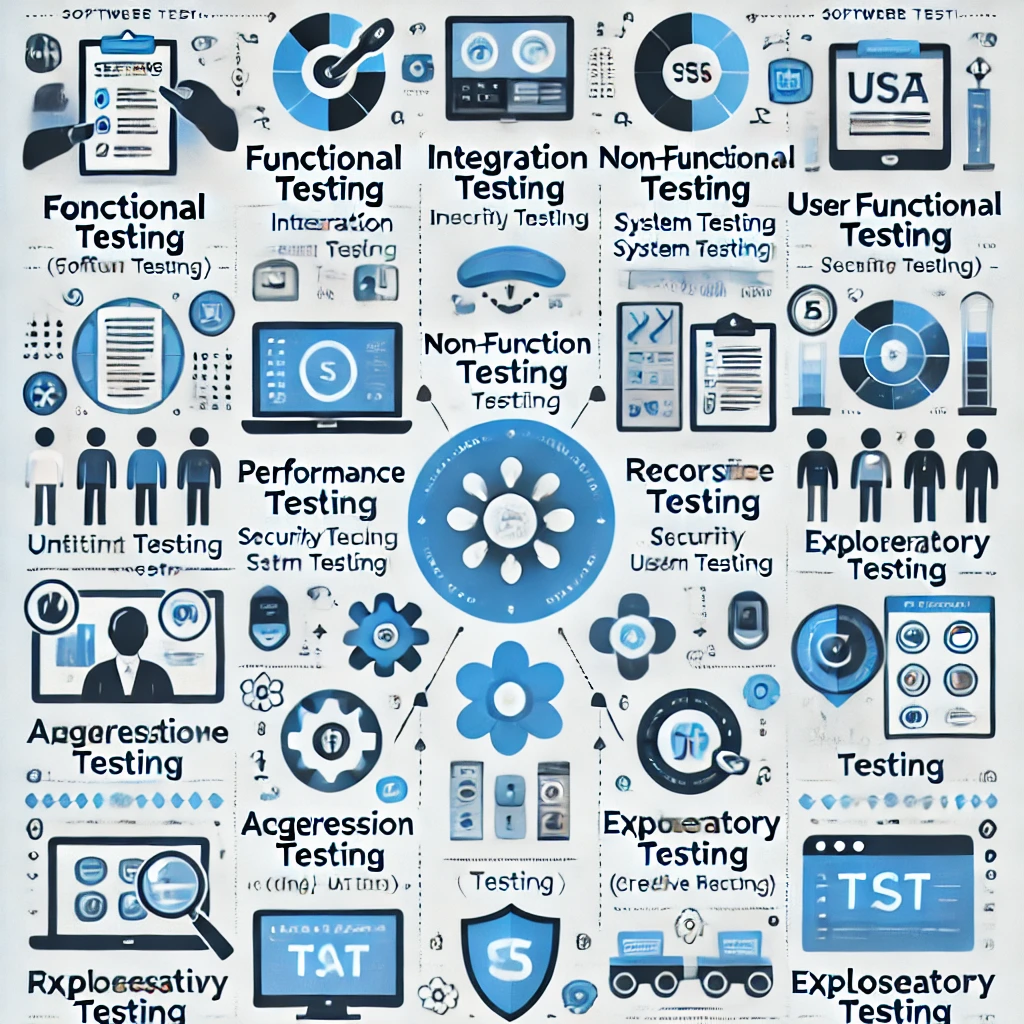Software testing is a critical aspect of software development, ensuring that applications are reliable, functional, and secure. Different types of testing serve unique purposes, and applying the right kind of testing per case can prevent costly errors and enhance user experience.
1. Functional Testing
Functional testing ensures that the software operates according to specified requirements. It includes:
-
Unit Testing: Testing individual components for correct operation.
-
Integration Testing: Checking interactions between integrated units.
-
System Testing: Evaluating the complete system’s functionality.
2. Non-Functional Testing
Non-functional testing assesses the performance, usability, and reliability of an application. Key types include:
-
Performance Testing: Measures responsiveness and stability under load.
-
Security Testing: Identifies vulnerabilities and protects data integrity.
-
Usability Testing: Ensures ease of use for end-users.
3. Regression Testing
Regression testing ensures that new updates or modifications do not negatively affect existing functionality. This is crucial for continuous integration and delivery.
4. Acceptance Testing
User Acceptance Testing (UAT) validates that the software meets business requirements and is ready for deployment. This phase often involves real-world end-users.
5. Exploratory Testing
This type of testing relies on testers’ creativity and experience to identify unexpected defects that automated scripts might miss.
Why Applying the Right Testing Type is Essential
Applying different testing types per case ensures that:
-
Software meets functional and business needs
-
Performance and security risks are mitigated
-
User experience remains smooth and intuitive
-
Costly post-deployment issues are avoided
At Testing Made Simple, we tailor testing strategies to fit specific project needs, ensuring quality and reliability. Contact us to learn how we can help improve your software’s performance and security.



